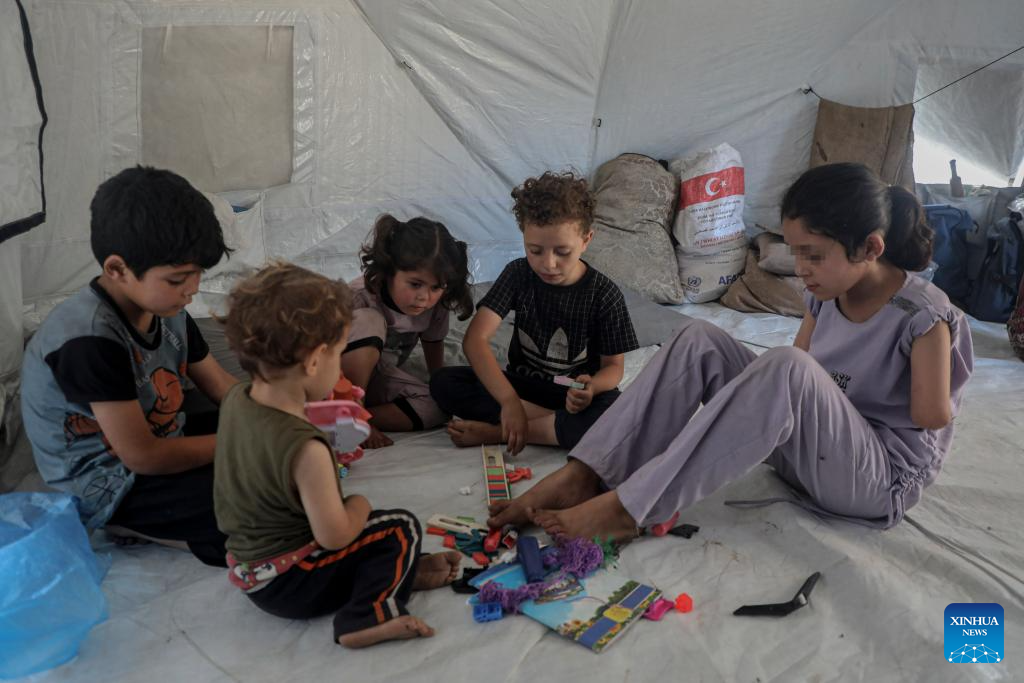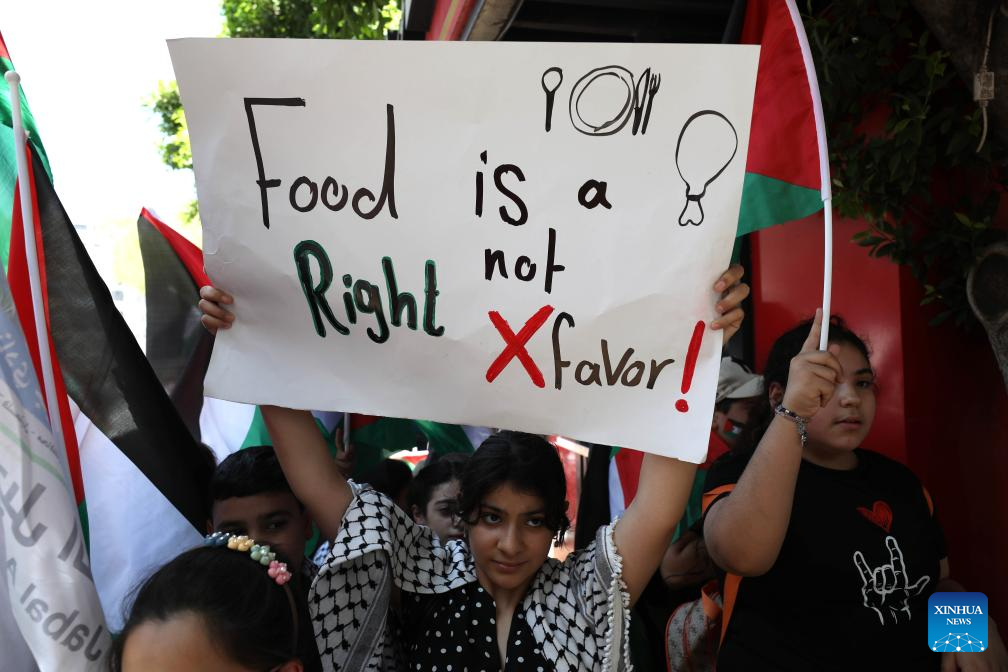UNRWA: Hunger is spreading fast in Gaza. Women and girls are forced to adopt increasingly dangerous survival strategies like venturing out in search of food and water at the extreme risk of being killed
One million women and girls are facing mass starvation, violence, and abuse in Gaza, the United Nations Relief and Works Agency for Palestine Refugees in the Near East (UNRWA) said.
“Hunger is spreading fast in Gaza … Women and girls are forced to adopt increasingly dangerous survival strategies like venturing out in search of food and water at the extreme risk of being killed,” UNRWA said.
It urged lifting the Israeli blockade on Gaza, home to more than 2 million people, and bringing in humanitarian aid “at scale.”
The remarks came as Gaza-based health authorities reported on Saturday 11 more deaths, including a child, from famine and malnutrition in the past 24 hours, bringing the total number of hunger-related deaths to 251, including 108 children.
The total number of people killed by Israeli strikes since October 2023 has topped 61,800, with more than 155,000 wounded, according to the health authorities.
On Thursday, 108 non-governmental organizations (NGOs) noted in a joint statement that since March 2, “most major international NGOs have been unable to deliver a single truck of lifesaving supplies” due to Israel’s limit on humanitarian aid entering Gaza, and in July alone, over 60 requests from dozens of NGOs were denied under Israel’s justification that they are “not authorized to deliver aid.”
On Friday, the UN Human Rights Office said that between May 27 and Aug. 13, at least 1,760 Palestinians were recorded killed while seeking aid in Gaza, 994 in the vicinity of the non-UN militarized sites and 766 along the routes of supply convoys.

Starvation Deaths
More deaths are reported in the Gaza Strip from the starvation crisis and attempts to retrieve aid amid expanding Israeli military operations, UN humanitarians said.
“The already dire situation in Gaza could worsen without a reliable, rapid, safe and unrestricted flow of supplies into the strip,” said the UN Office for the Coordination of Humanitarian Affairs (OCHA). “It is imperative that humanitarians are enabled to deliver aid at scale, using community-based mechanisms to reach the most vulnerable.”
The office said that people in Gaza are gravely concerned by the potential impact of an expansion of military operations in Gaza City.
The United Nations has reiterated that it will not participate in any forced displacement of the population. Fleeing civilians must be protected and have their essential needs met, and they must be able to return to their homes voluntarily when the situation allows, said OCHA.
It said more starvation deaths have been reported, including among many children who are regularly admitted to hospitals for malnutrition.
The World Health Organization warned that many health care facilities have run out of bedspace to treat malnourished patients. Access to health care must be restored immediately.
“Between May 27 and Aug. 8, the Red Cross Field Hospital in Rafah treated more than 4,500 wounded patients, most of whom reported that they were injured while trying to reach food distribution sites,” OCHA said.
The office also said that some Palestinians reported injuries in the crush of the crowd or being beaten and robbed of their supplies immediately after receiving them.
The UN Human Rights Office said that between May 27 and Aug. 13, at least 1,760 Palestinians were recorded killed while seeking aid, 994 in the vicinity of the non-UN militarized sites and 766 along the routes of supply convoys.
“No one should be killed for trying to access aid,” it said.
The office called on the Israeli military to immediately stop attacks on Palestinians attempting to provide security for humanitarian and other supply convoys and their routes. Such attacks have significantly contributed to the spread of starvation in Gaza.
“Since the beginning of August, we have recorded 11 incidents involving attacks on Palestinians guarding convoys in north Gaza and middle Gaza,” it said. “These incidents resulted in the killing of at least 46 Palestinians, mainly those providing security to humanitarian and supply convoys, along with some seeking aid, and injuring many others.”

It said that since the war in Gaza began in October 2023, it has recorded dozens of incidents in which the Israeli military unlawfully targeted civilian police officers, contributing to the collapse of law enforcement, leading directly to disorder around supply convoys, as the population becomes increasingly desperate to access food in the face of deepening starvation.
OCHA said more diverse supplies and routes must be made routinely available. It said that while a slight easing of commercial supplies entering the strip has reportedly led to a decrease in the prices of some food items at local markets, energy prices have skyrocketed. Cooking gas has not been available in markets for the past five months, and firewood has become even less affordable.
“More people are resorting to using waste and scrap wood as alternative fuel sources for cooking,” said OCHA. “Partners working on food security warn that both the quantity and quality of supplies entering Gaza remain far below the minimum requirements to meet people’s needs.”
OCHA said the United Nations and its humanitarian partners reported ongoing delays in aid movements and other impediments, including bottlenecks at holding points and interference in the loading process at the platforms, which are impacting their efforts to collect supplies from the crossings and deliver them to people in need.
The office said that only five out of 12 missions requiring coordination with Israeli authorities were facilitated without impediments on Thursday.
The missions included the collection of supplies from the Kerem Shalom/Karem Abu Salem border crossing and the transfer of fuel to the north. Four missions were canceled by the organizers, while three others were impeded and only eventually fully accomplished.











